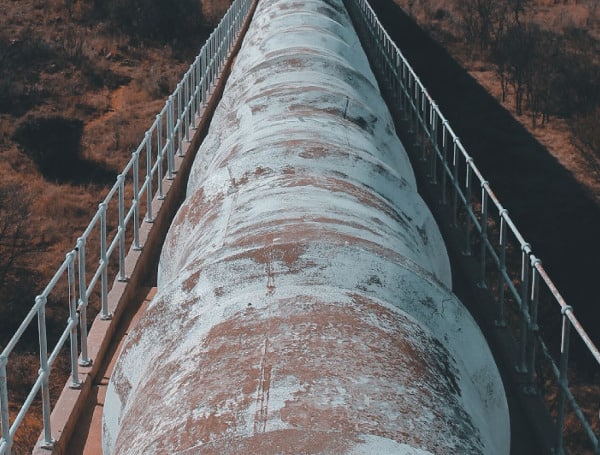South Dakota regulators voted unanimously Monday against granting a permit to a company building a carbon pipeline in the state, local outlet Dakota News Now reported.
The three commissioners of the South Dakota Public Utilities Commission (SDPUC) voted to deny Summit Carbon Solution’s permit application for the project, which has faced backlash from locals and landowners that would be impacted by its construction, according to Dakota News Now.
The SDPUC’s decision follows its decision last week to deny a permit application filed by Navigator, a company seeking to build its own similar carbon capture and storage (CCS) pipeline in the state.
In the news: 7 Activists Arrested After PEPFAR Takeover Of House Speaker Kevin McCarthy’s Office
“It is my estimation after listening to the testimony today that Summit Carbon cannot demonstrate at this time or in the near future that they have the ability to route the pipeline as proposed,” SDPUC Commissioner Josh Haeder said, according to the Argus Leader. “Without … preemption, you’ve made crystal clear in your prefiled testimony that various county ordinances make this an impossible project at this time.”
The company has filed more than 80 eminent domain lawsuits against South Dakotan farmers and landowners in order to secure the land needed to build the project, according to the Mitchell Republic. Locals who have struggled with the company over land rights overwhelmingly tend to oppose the pipeline’s construction on their land.
“Today, the pipeline permit application for Summit Carbon Solutions was denied by the South Dakota Public Utilities Commission,” a company spokesperson told the Daily Caller News Foundation. The company “respects the decision, plans to refile, and is reinforcing its commitment to South Dakotans and the state’s ethanol and sustainable-aviation-fuel industries.”
In the news: Corporate America Backs Away From ‘Diversity’ Language In Wake Of SCOTUS Decision
CCS technology “involves the capture of carbon dioxide emissions from industrial processes, such as steel and cement production, or from the burning of fossil fuels in power generation,” which “is then transported from where it was produced, via ship or in a pipeline, and stored deep underground in geological formations,” according to NationalGrid.
The proposed Summit pipeline would run through large swaths of South Dakota, North Dakota, Minnesota, Nebraska and Iowa, according to Summit’s webpage for the project. The $5.5 billion project’s 2,000-mile pipeline network would transport captured carbon from 34 ethanol plants in the five states and deposit it deep underground in North Dakota, according to The Associated Press.
The SDPUC did not respond immediately to requests for comment.
Android Users, Click To Download The Free Press App And Never Miss A Story. Follow Us On Facebook and Twitter. Signup for our free newsletter.
We can’t do this without your help; visit our GiveSendGo page and donate any dollar amount; every penny helps

